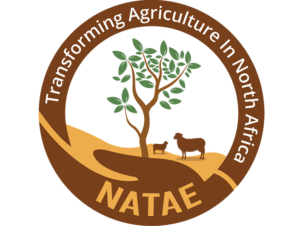
Fostering Agro-Ecological Transition in North Africa Through Multi-Actor Design, Evaluation and Networking
 NATAE (Fostering agroecology transition in North Africa through multi-actor, evaluation, and networking) is a recently awarded project under the Horizon Europe program. Based on a multi-actor and interdisciplinary approach, this four-year project will generate new perspectives to evaluate agroecology-inspired practices in a multidimensional way and at several scales (from production systems to territories and value chains). The objectives are to identify, evaluate and eventually promote the best combinations of agro-ecologically inspired practices in North Africa observed and tested (i), and to set up a Mediterranean agroecological network for knowledge exchange and advocacy at the regional level (ii).
NATAE (Fostering agroecology transition in North Africa through multi-actor, evaluation, and networking) is a recently awarded project under the Horizon Europe program. Based on a multi-actor and interdisciplinary approach, this four-year project will generate new perspectives to evaluate agroecology-inspired practices in a multidimensional way and at several scales (from production systems to territories and value chains). The objectives are to identify, evaluate and eventually promote the best combinations of agro-ecologically inspired practices in North Africa observed and tested (i), and to set up a Mediterranean agroecological network for knowledge exchange and advocacy at the regional level (ii).
The transformation of agriculture in the context of climate change is a central challenge in North Africa, which is the region of the world most dependent on food imports and a hot spot for climate change.
Faced with these issues, agroecology appears to be a response to address both the challenges of global sustainability and local resilience.
The NATAE project aims to foster the adoption of science-based, locally adapted, and co-designed AE strategies in North Africa by creating a comprehensive and quantitative baseline on AE, providing shared understanding, multi-dimensional performance measures, and analyses of AE’s potential to meet consumer demand in the marketplace.
To realize this objective, NATAE will establish and inform a unique multi-stakeholder knowledge-sharing and capacity-building community on EI in the Mediterranean. An original multidimensional and multiscale assessment model, integrating currently neglected factors and a transferable methodological guide will be designed. An integrated modeling approach combining a chain of biophysical and bioeconomic household/regional indicators will be used to develop a unique integrated food and agricultural systems assessment to evaluate the resilience of EAP-based food and agricultural systems. Participatory approaches via living labs will be developed to develop, test and capitalize on alternative public policies and to foster the transition to AE in North Africa.
A collective incorporating dissemination activities will test, advance and communicate a range of existing farm-to-fork EI innovations, including value chain innovations and food system governance innovations, by advancing their respective levels of maturity.
MORE INFORMATION
Source of funding

- European Union Horizon Europe Programme
Programme and contact references
- Project Scientific Coordinator: Mélanie Requier-Desjardins (requier@iamm.fr)
- Project Manager: Rita Jalkh (rijalkh@iamm.fr)
- Contact: contact@natae-agroecology.eu
Partners
- France: CIHEAM-IAMM (Coordinator), CARI, GRDR – Migration-Citizenship-Development
- Tunisia: Institute of Agricultural Research and Higher Education – INAT, Sahara and Sahel Observatory -OSS, National Institute of Field Crops
- Greece: CIHEAM-MAICh, University of Thessaly
- Italy: CIHEAM-Bari
- Germany: Leibniz Centre for Agricultural Landscape Research – ZALF
- Netherlands: Wageningen University & Research – WUR
- Morocco: Institut Agronomique et Vétérinaire Hassan II – IAV HASSAN II, Ecole Nationale de l’Agriculture Meknès-ENAM, Réseau des Initiatives Agroécologiques au Maroc – RIAM
- Algeria: Centre de Recherche en Économie Appliquée pour le Développement – CREAD, Ecole Nationale Supérieure Agronomique Kasdi Merbah – ENSA
- Egypt: University of Cairo – CRDRS
- Lebanon: ICARDA
- Libya: University of Sebha
- Mauritania: TENMIYA – Center of Innovations for Development
- Portugal: Sociedade Portuguesa de Inovação – SPI
- South Africa: University of Pretoria
- Switzerland: IUCN Mediterranean
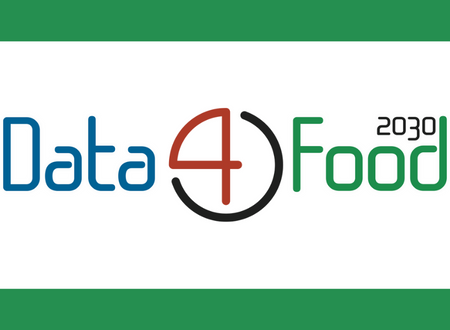
Fostering agroecology transition in North Africa through multi-actor, evaluation, and networking
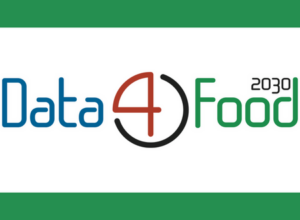 Discovering the value of data economy in European food systems
Discovering the value of data economy in European food systems
The main objective of the Data4Food2030 project is to improve the data economy for food systems by clarifying what it entails, mapping its development, performance and impact to create new insights and opportunities that provide empirically-grounded and inclusive policy recommendations and a roadmap for its further development.
>> Site web
Stakeholders from 9 different EU countries will take part in the 9 Case Studies, which represent the key food system related services provided across 25 EU countries.
The real life examples of the Data Economy in action will involve 38 core and supporting partners as well as numerous stakeholders including partners, suppliers, and consumers.
The roots of the consortium lie in a series of EU projects centered on digitalization in the agri-food sector (e.g. SmartAgriFood, FISPACE, IoF2020 and SmartAgriHubs). The topic of data sharing between agri-food companies has been shown to be a ‘hot potato’ in digital innovation (i.p. IoF2020) but the consortium is eager to use its extensive expertise in digital innovation and mobilize their networks to work on this specific topic.
More information
Source of funding

- Union Européenne: HORIZON CL6
Programme and contact references
Partners
- FOODSCALE HUB GREECE ASSOCIATION FOR ENTREPRENEURSHIP AND INNOVATION ASTIKI MI KERDOSKOPIKI ETAIREIA
- INSTITUT NATIONAL DE RECHERCHE POUR L’AGRICULTURE, L’ALIMENTATION ET L’ENVIRONNEMENT
- EIGEN VERMOGEN VAN HET INSTITUUT VOOR LANDBOUW- EN VISSERIJONDERZOEK
- WAGENINGEN UNIVERSITY
- VRIJE UNIVERSITEIT BRUSSEL
- STICHTING EFFOST
- EUROPEAN FOOD INFORMATION RESOURCE AISBL
- NODIBINAJUMS BALTIC STUDIES CENTRE
- SZKOLA GLOWNA GOSPODARSTWA WIEJSKIEGO
- WIRELESSINFO
- 1001 Lakes Oy
- AGDATAHUB
- UNIVERZA V MARIBORU
- UHLAVA OPS
- LUONNONVARAKESKUS
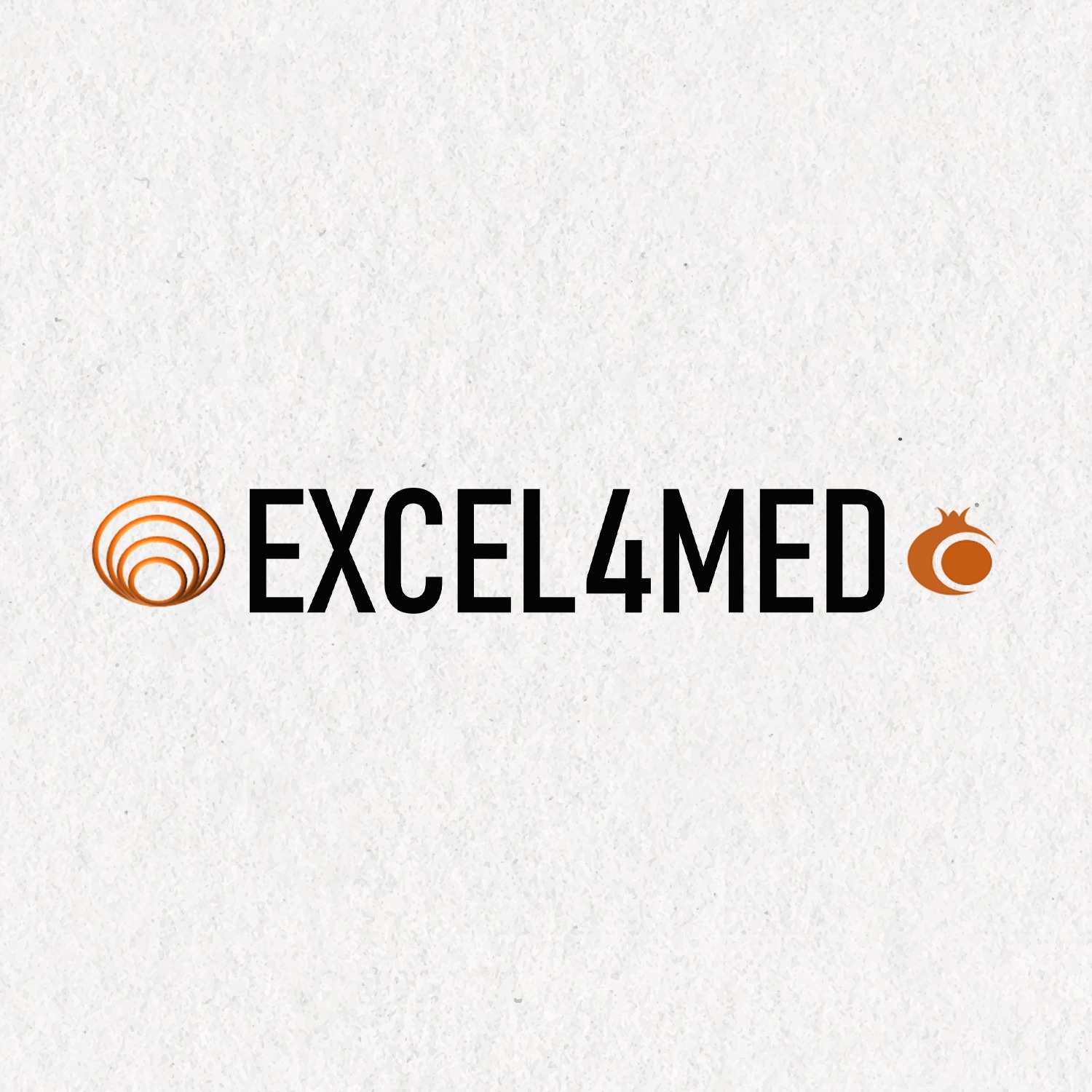
Excellence hub in green technologies: Introducing innovation ecosystems in the Mediterranean food value chain.
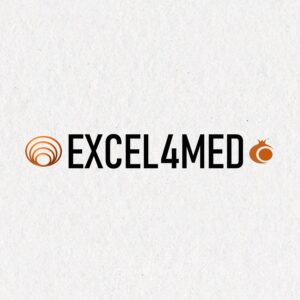 The overarching objective of EXCEL4MED is to create an Excellence Hub in Mediterranean fruit supply chains. The project aims at identifying high-impact strategies and establish lines of resilience for producers, processors, consumers and policymakers. This will be achieved by considering agility, adaptability, and alignment within the four domains of business, collaboration, sourcing, and knowledge management.
The overarching objective of EXCEL4MED is to create an Excellence Hub in Mediterranean fruit supply chains. The project aims at identifying high-impact strategies and establish lines of resilience for producers, processors, consumers and policymakers. This will be achieved by considering agility, adaptability, and alignment within the four domains of business, collaboration, sourcing, and knowledge management.
Overall, EXCEL4MED will offer an adaptive capability in the Mediterranean supply chain preparing for novel waste valorisation strategies, production of added value fruit products following a holistic commerce, and the implementation of green innovative technological methodologies within a Quadruple Helix concept. EXCEL4MED will develop and demonstrate the solution in Mediterranean high-value perishable food supply chains: pomegranate and citrus fruits. Importantly, EXCEL4MED will disseminate this solution to end-users and organise training courses for stakeholders.
EXCEL4MED website: https://excel4med.eu/
MORE INFORMATION
Source of funding

- European Union Horizon Europe Programme
Programme and contact references
- Project Coordinator: ETHNIKO KAI KAPODISTRIAKO PANEPISTIMIO ATHINON
- Project Manager at CIHEAM Montpellier: Kleftodimos Georgios
- Contact: kleftodimos@iamm.fr
Partners
- ETHNIKO KAI KAPODISTRIAKO PANEPISTIMIO ATHINON
- ELGO – DIMITRA
- K.PI.ZO
- Smart Agro Hub
- UNIVERSITY OF MALTA
- MGARR FARMING CO LTD
- Malta Food Agency
- Malta Chamber of Commerce
- SEVT
- REGION OF ATTICA
- Malta Life Sciences Centre Limited
- CIHEAM-IAMM
- ASPIS AE
- COOPERATIVES MALTA
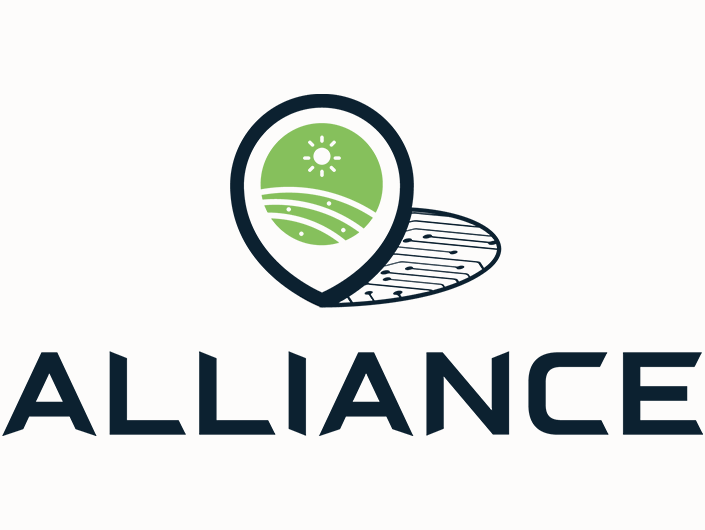
ALLIANCE: A hoListic framework in the quality Labelled food supply chain systems’ management towards enhanced data Integrity and verAcity, interoperability, traNsparenCy, and tracEability
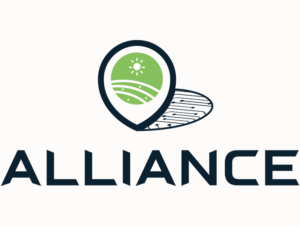 The ALLIANCE project is a framework created to ensure data veracity and transparency in EU quality-labelled food chains. It proposes systemic solutions that go beyond current practices in order to enhance traceability, ensure authenticity, preserve quality and eliminate fraud in food products. It will use innovative methods and tools to detect adulteration on the spot, as well as consolidate international and European links, raise awareness and promote multi-actor cooperation and information-sharing.
The ALLIANCE project is a framework created to ensure data veracity and transparency in EU quality-labelled food chains. It proposes systemic solutions that go beyond current practices in order to enhance traceability, ensure authenticity, preserve quality and eliminate fraud in food products. It will use innovative methods and tools to detect adulteration on the spot, as well as consolidate international and European links, raise awareness and promote multi-actor cooperation and information-sharing.
It will also increase transparency in quality-labelled supply chains, of organic, PDO, PGI and GI food, through improved track-and-trace mechanisms. Finally, it will equip food actors, farmers, public authorities, and policy makers with meaningful insights through 7 diverse use cases.
MORE INFORMATION
Website: https://alliance-heu-project.eu/
Source of funding

- European Union Horizon Europe Programme
Programme and contact references
- Project Coordinator: University of Thessaly
- Project Manager at CIHEAM Montpellier: Kleftodimos Georgios
- Contact: kleftodimos@iamm.fr
Partners
- UTH
- Intrasoft
- Biocos
- Migros IT
- The Lisbon Council
- SVEUCILISTE U ZAGREBU AGRONOMSKI FAKULTET
- CIHEAM-IAMM
- The World Bee Project CIC
- UNIBO
- FEDERBIO SERVIZI SRL
- CONSEJO REGULADOR IGP FABA ASTURIANA
- ASINCAR
- ALCE NERO SPA
- DIAMANTIS MASOUTIS AE SUPER MARKET
- OLYMPOS
- Wisefour Innovation and Development Organisation Ltd
- CIA UMBRIA
- Biotechnicon poduzetnički centar doo
- Consejería de Medio Rural y Cohesión Territorial del Principado de Asturias
- EUROFIR AISBL
- MENA GROUP
- INSTITUTE FOR FOOD TECHNOLOGY OF NOVI SAD
- RMS 001 d.o.o.
- UDRUGA PROIZVODACA LICKOG KRUMPIRA
- Association of Producers of Products with Geographical Indication of Serbia “Original Srbija”
- Bayerisches Landesamt für Gesundheit und Lebensmittelsicherheit
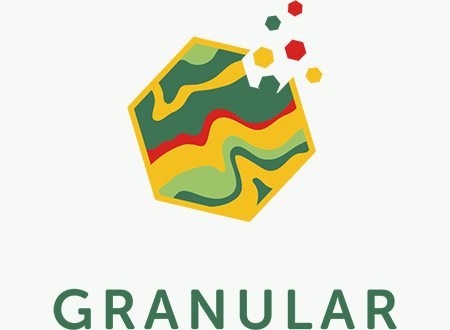
Giving Rural Actors Novel data and re-Useable tools to Lead public Action in Rural areas
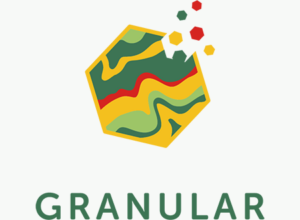
Departing from an updated conceptualisation of rurality based on the multi-dimensional nature of contemporary rural-urban interrelations and interdependencies, GRANULAR will generate new insights for characterising rural diversity.
Led by CIHEAM Montpellier, GRANULAR gathers 23 partners (academic institutes, international organisations, NGOs, rural networks and local authorities) and will use participatory methods in 16 pilot territories across Europe in order to capture the complexity of challenges faced by rural areas with a local stakeholders’ perspective.
The project is structured in 7 work packages with many inter-linkages and will contribute to current scientific discussions through:
- (i) advancement of concepts to characterise rural diversity and grasp rural proofing;
- (ii) novel methods to generate data relevant to rural areas, and new thematic datasets;
- (iii) empirical findings from Multi-Actor Labs and from data analyses for specific topics.
All partners will contribute to the design of data, indicators and tools. Co-construction will ensure that GRANULAR takes stock of local realities and needs, while fitting the findings in overarching policy frameworks. Data and tools emerging from the project will be developed through an open strategy that will ensure replicability and will be made available online through public repositories and a dedicated online platform. In addition, GRANULAR will create a Rural Compass, that takes into account the factors affecting rural communities and their functional characteristics, informing policymakers and rural actors for the design of tailored rural policies for a just, resilient and inclusive development.
Website : https://www.ruralgranular.eu/
GRANULAR 2023 results
More information
Source of funding
- European Union, Horizon Europe programme
- UKRI United Kingdom funds on research and innovation
Programme and contact references
Partners
- CIHEAM Montpellier
- NORDREGIO
- WAGENINGEN UNIVERSITY
- INTERNATIONALES INSTITUT FUER ANGEWANDTE SYSTEMANALYSE
- UNIVERSITA DI PISA
- GEOPONIKO PANEPISTIMION ATHINON
- ASSOCIATION EUROPEENNE POUR L’INFORMATION SUR LE DEVELOPPEMENT LOCAL
- CESKA ZEMEDELSKA UNIVERZITA V PRAZE
- CENTRE NATIONAL DE LA RECHERCHE SCIENTIFIQUE CNRS
- UNIVERSITE PARIS CITE
- EUROPEAN RURAL DEVELOPMENT NETWORK
- JOHANN HEINRICH VON THUENEN-INSTITUT, BUNDESFORSCHUNGSINSTITUT FUER LAENDLICHE RAEUME, WALD UND FISCHEREI
- ECORYS
- UNIVERSIDAD DE VIGO
- PARTENARIAT POUR L’EUROPE RURALE
- REGION VASTERBOTTEN
- GEMEENTE OPSTERLAND (P10)
- ASSOCIAZIONE DISTRETTO RURALE DELLAVAL DI CECINA
- LUONNONVARAKESKUS
- Pays Pyrénées-Méditerranée
- POLITECHNIKA KOSZALINSKA
- CIHEAM Chania
- UNIVERSITA DEGLI STUDI DI MILANO
- UNIVERSITY OF SOUTHAMPTON
- THE JAMES HUTTON INSTITUTE
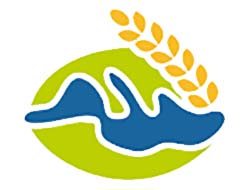
Mediterranean Agricultural Markets Information Network
The MED-Amin network was created in 2014 at the request of the Ministers of Agriculture of the 13 CIHEAM member countries, against the background of the world food crises in 2008-2009, then 2011.
MED-Amin is a network for monitoring agricultural markets and food systems that contributes to Pillar 4 “Crises and resilience” of CAPMED 2025. It focuses in particular on five cereals (soft wheat and durum wheat, barley, maize and rice) which are essential to the food security in the Mediterranean.
MED-Amin aims to limit the excessive volatility of food prices by encouraging the transparency of international markets for basic agricultural products.
The network thus encourages the coordination of national market policies.
>> More information on MED-Amin Network
 NATAE (Fostering agroecology transition in North Africa through multi-actor, evaluation, and networking) is a recently awarded project under the Horizon Europe program. Based on a multi-actor and interdisciplinary approach, this four-year project will generate new perspectives to evaluate agroecology-inspired practices in a multidimensional way and at several scales (from production systems to territories and value chains). The objectives are to identify, evaluate and eventually promote the best combinations of agro-ecologically inspired practices in North Africa observed and tested (i), and to set up a Mediterranean agroecological network for knowledge exchange and advocacy at the regional level (ii).
NATAE (Fostering agroecology transition in North Africa through multi-actor, evaluation, and networking) is a recently awarded project under the Horizon Europe program. Based on a multi-actor and interdisciplinary approach, this four-year project will generate new perspectives to evaluate agroecology-inspired practices in a multidimensional way and at several scales (from production systems to territories and value chains). The objectives are to identify, evaluate and eventually promote the best combinations of agro-ecologically inspired practices in North Africa observed and tested (i), and to set up a Mediterranean agroecological network for knowledge exchange and advocacy at the regional level (ii).


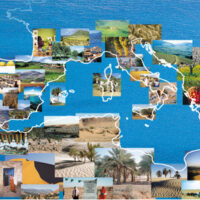 CIHEAM MontpellierOur vision is that of a Mediterranean basin characterised by a spirit of cooperation.
CIHEAM MontpellierOur vision is that of a Mediterranean basin characterised by a spirit of cooperation.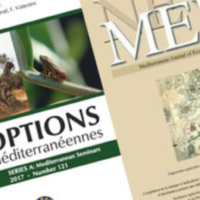 CIHEAM publicationsOur publications and communication tools aim to facilitate decision-making processes for political, economic and agricultural actors in the Mediterranean region
CIHEAM publicationsOur publications and communication tools aim to facilitate decision-making processes for political, economic and agricultural actors in the Mediterranean region News and events
News and events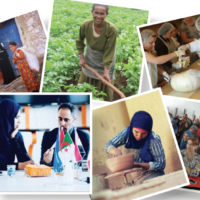 Press review (Scoop.it)
Press review (Scoop.it) Master programmesThe CIHEAM Montpellier stands for both personalised accompaniment and international openness.
Master programmesThe CIHEAM Montpellier stands for both personalised accompaniment and international openness.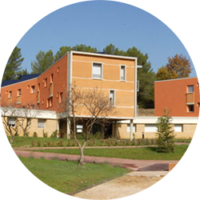 Campus & student lifeSince 1962, almost 95% of our foreign students have been granted accommodation on site.
Campus & student lifeSince 1962, almost 95% of our foreign students have been granted accommodation on site.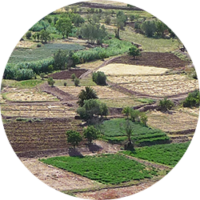 Doctoral platformShaping the scientists of tomorrow through research training… A natural commitment of the CIHEAM Montpellier
Doctoral platformShaping the scientists of tomorrow through research training… A natural commitment of the CIHEAM Montpellier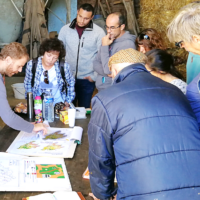 ProjectsOur research and cooperation projects are tools for inclusive development, they take into account the populations and rural and coastal territories of the Mediterranean.
ProjectsOur research and cooperation projects are tools for inclusive development, they take into account the populations and rural and coastal territories of the Mediterranean. Mediterranean online catalogueA unique Documentation Center on the Mediterranean,
invested in sharing knowledge.
Mediterranean online catalogueA unique Documentation Center on the Mediterranean,
invested in sharing knowledge. Scientific productionThe scientific production of the CIHEAM Montpellier is the fruit of collaborations by our lecturer-researchers, associated experts, students and research partners.
Scientific productionThe scientific production of the CIHEAM Montpellier is the fruit of collaborations by our lecturer-researchers, associated experts, students and research partners. Becoming partnersCreating partnerships is part of the genetic make-up of the CIHEAM Montpellier... Join one of its projects or study programmes, support its actions.
Becoming partnersCreating partnerships is part of the genetic make-up of the CIHEAM Montpellier... Join one of its projects or study programmes, support its actions.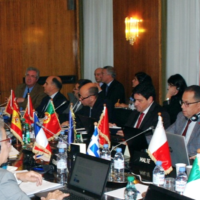 Ministerial meetingsThrough the Ministerial, CIHEAM contributes to the construction of a dialogue between the Mediterranean countries around questions relating to agriculture and the rural world.
Ministerial meetingsThrough the Ministerial, CIHEAM contributes to the construction of a dialogue between the Mediterranean countries around questions relating to agriculture and the rural world.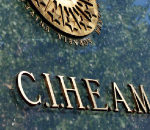
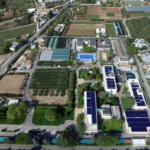
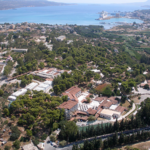
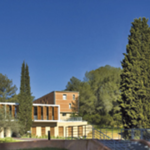
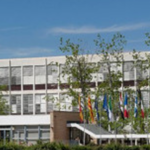

 Discovering the value of data economy in European food systems
Discovering the value of data economy in European food systems
 The overarching objective of EXCEL4MED is to create an Excellence Hub in Mediterranean fruit supply chains. The project aims at identifying high-impact strategies and establish lines of resilience for producers, processors, consumers and policymakers. This will be achieved by considering agility, adaptability, and alignment within the four domains of business, collaboration, sourcing, and knowledge management.
The overarching objective of EXCEL4MED is to create an Excellence Hub in Mediterranean fruit supply chains. The project aims at identifying high-impact strategies and establish lines of resilience for producers, processors, consumers and policymakers. This will be achieved by considering agility, adaptability, and alignment within the four domains of business, collaboration, sourcing, and knowledge management.
 The ALLIANCE project is a framework created to ensure data veracity and transparency in EU quality-labelled food chains. It proposes systemic solutions that go beyond current practices in order to enhance traceability, ensure authenticity, preserve quality and eliminate fraud in food products. It will use innovative methods and tools to detect adulteration on the spot, as well as consolidate international and European links, raise awareness and promote multi-actor cooperation and information-sharing.
The ALLIANCE project is a framework created to ensure data veracity and transparency in EU quality-labelled food chains. It proposes systemic solutions that go beyond current practices in order to enhance traceability, ensure authenticity, preserve quality and eliminate fraud in food products. It will use innovative methods and tools to detect adulteration on the spot, as well as consolidate international and European links, raise awareness and promote multi-actor cooperation and information-sharing.


